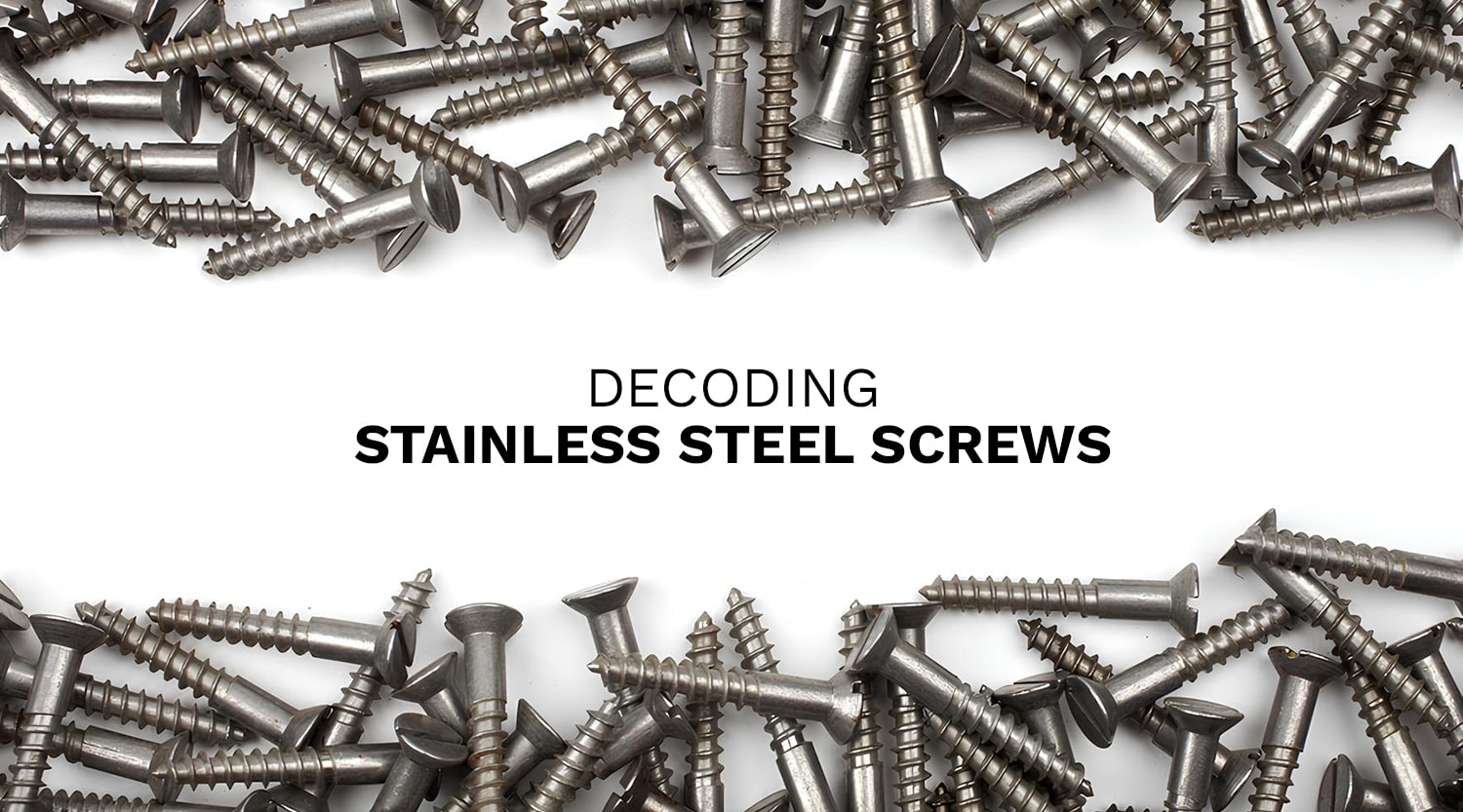


In the world of screws, 316 stainless steel screws are the go-to fasteners used by industry professionals. However, there is rising competition from other grades too making their case against 316 SS screws.
Did you know that the Chrysler Building, one of New York City’s most iconic skyscrapers, was constructed using stainless steel screws back in the 1930s? Fast forward to today, and the debate between 304 and 316 stainless steel screws continues to be a hot topic among builders, engineers, and DIY enthusiasts alike. With the global stainless steel market expected to reach USD 182.13 billion by 2027, understanding the differences between these two popular grades has never been more crucial. In this blog post, we’ll dive deep into the world of 304 and 316 stainless steel screws, comparing their strength, corrosion resistance, and cost, to help you make an informed decision for your next project. Whether you’re a seasoned professional or a curious consumer, join us as we unravel the mysteries behind these shiny, yet incredibly strong fasteners.
To understand the performance differences between 304 and 316 stainless steel screws, let’s first look at their chemical composition. 304 stainless steel, also known as 18-8, contains 18% chromium and 8% nickel. This combination provides excellent resistance against corrosion and is suitable for a wide range of applications.
On the other hand, 316 stainless steel is great for manufacturing a corrosion resistant screw by incorporating 2-3% molybdenum into its composition, along with a slightly higher nickel content of 10%. This addition of molybdenum enhances the steel’s ability to withstand chloride-induced pitting and corrosion in more aggressive environments.
When it comes to strength, the battle between 304 vs 316 stainless steel screws intensifies, as they both offer impressive mechanical properties. However, the presence of molybdenum in 316 stainless steel gives it a slight edge over 304. The added strength of 316 SS screws makes them suitable for applications where higher stress levels are expected, such as in marine or chemical processing environments.
It’s worth noting that while 316 stainless steel screws have a higher yield strength, 304 stainless steel screws exhibit greater elongation and tensile strength. This means that 304 screws may be a better choice for applications where ductility and formability are essential.
One of the primary reasons for choosing stainless steel fasteners is their ability to resist corrosion. While both 304 and 316 SS screws offer excellent corrosion resistance compared to standard carbon steel, 316 stainless steel takes the lead in more demanding environments.
The addition of molybdenum in 316 stainless steel enhances its resistance to chloride-induced pitting and crevice corrosion. This makes 316 stainless steel screws the preferred choice for coastal regions, swimming pools, and other areas with high chloride exposure. If your project involves frequent contact with salt water or corrosive chemicals, opting for 316 SS screws can significantly extend the life of your fasteners.
When it comes to cost, 304 stainless steel screws have an advantage over their 316 counterparts. The higher alloy content in 316 stainless steel, particularly the addition of molybdenum, increases the manufacturing costs. As a result, 316 SS screws tend to be more expensive than 304 SS screws.
However, it’s essential to consider the long-term cost implications. In environments where corrosion is a significant concern, investing in 316 SS screws can save you money in the long run by reducing the need for frequent replacements and maintenance.
When it comes to machinability, 304 SS screws exhibit good machinability, making it easier to fabricate compared to 316 SS screws. The 316 SS screws on the other hand are slightly tough to machine due to their higher hardness. They require sharper tools as well as slower machining speeds while fabricating.
304 SS screws are known for their recyclability and sustainability, contributing to environmental conservation. They require less energy and resources for recycling compared to other materials, helping to reduce carbon emissions. 316 SS screws on the other hand contain molybdenum, due to which their recycling process gets heavily affected. While they are still recyclable, the presence of alloying elements introduces challenges in separating and processing recycled material.
304 stainless steel screws are considered biocompatible and safe for use in medical devices and surgical implants. In comparison, 316 stainless steel screws are much more biocompatible due to the presence of molybdenum in it. They offer enhanced resistance to body fluids and harsh physiological environments reducing the risk of tissue reactions in implanted devices.
When sourcing stainless steel screws, it’s crucial to choose a reliable and experienced manufacturer. A trusted manufacturer will also provide detailed product specifications, certifications, and technical support to help you make an informed decision. With LP Screw, you can never go wrong with buying the stainless steel screws.
Selecting the right stainless steel screws for your project depends on various factors, including the environment, required strength, and budget. While 304 stainless steel screws are a cost-effective option for general-purpose applications, 316 stainless steel screws offer superior corrosion resistance and strength in more demanding environments.
By understanding the differences between these two grades, you can make an informed decision that balances performance and cost. Remember to consider the long-term benefits of investing in higher-quality fasteners, as they can save you time, money, and headaches in the long run.
When in doubt, feel free to go through our free resources, which we keep sharing on our website. LP Screw, being a leading stainless steel screw manufacturer in India, can guide you through the selection process and help you find the perfect fasteners for your project. With the right choice of stainless steel screws, you can ensure the longevity and integrity of your structures, even in the most challenging environments.